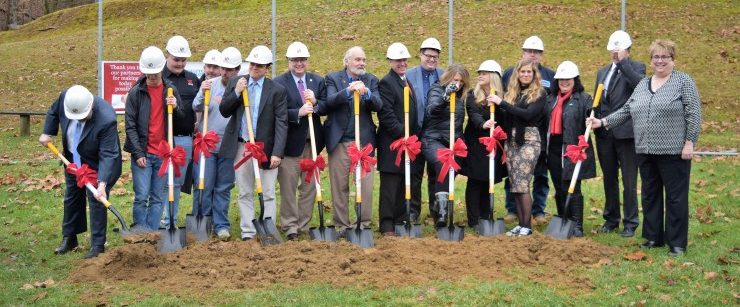
The Youth Transition Project (YTP) is a public-private partnership focused on youth ages 16-23 transitioning from foster care or experiencing homelessness. The centerpiece of the project is a tiny-home village with comprehensive life skills, employment training, education and well-being supports provided by the broader community. The goal is that disconnected West Virginia youth are supported to reach their full potential as they transition into adulthood.
Project Vision: Youth and young adults live full lives with meaningful work, confidence, wellness and support.
Project Mission: Community partners work together to build a pipeline of full support for vulnerable youth in need ages 16 to 21. This support includes housing, treatment, youth engagement, transition coaching, job exploration and experience, education and community arts and recreation.
The Transitioning Youth to Independence Program works with youth ages 17 – 21 years and offers a unique opportunity for youth to gain the skills needed to live independently through social and adaptive living skills training in a supportive atmosphere. Programs offer experiential hands-on learning opportunities, identification of natural supports & community-based services and linkages to progressive educational and employment programs in the service rich southwestern area of Wayne & Cabell Counties.
PHASE I – Residential Level I Preparation for Independent Living Program (24/7 supervision)
The Transitioning Program Phase I is a structured on-ground semi-independent program. The Program is developed to assist youth who are not entirely ready to live on their own, but who do not necessarily need all of the structure of a residential treatment program. Each youth must be responsible to take care of their responsibilities with little prompting, responding appropriately to the normalized treatment expectations and be participatory in the experiential life-skills environment.
PHASE II – Supported Housing/Tiny Home Village
Phase II continues the experiential living environment in a supported tiny home village on Stepping Stones property. The tiny home village will give each youth a “taste” of living independently without having to face it entirely on their own. The youth have the opportunity to practice dealing with the challenges of living independently (e.g., paying bills, paying rent, resolving roommate differences, managing their own schedules) with staff available to process these difficulties. Youth must be engaged in 40 Productive Hours weekly such as school, work and/or service-learning volunteer activities. Additionally, youth are expected to demonstrate an ability to navigate their own medical needs, finances, form lasting relationships, connect with the community, exhibit a work ethic, and advance educationally/vocationally.
PHASE III – Scattered Site Apartments & Transition Coaching
Location: Wayne, Cabell, Putnam Counties w/in 45 minutes of Stepping Stones
Phase III – the Chafee Transitional Living Program is the final step in the Transitioning Program continuum. Youth live independently in the community in apartments with a dedicated financial stipend. To be eligible for the Chafee Scattered Site Apartment Living Program, the youth must have been in continuous care for a period of six months and have demonstrated an ability to handle independence as evidenced by stable and responsible behavior prior to referral to Transitional Living. In the Program, Youth must agree to be engaged in 40 Productive Hours weekly via secured employment and be attending high school, TASC classes, vocational school, or college.
